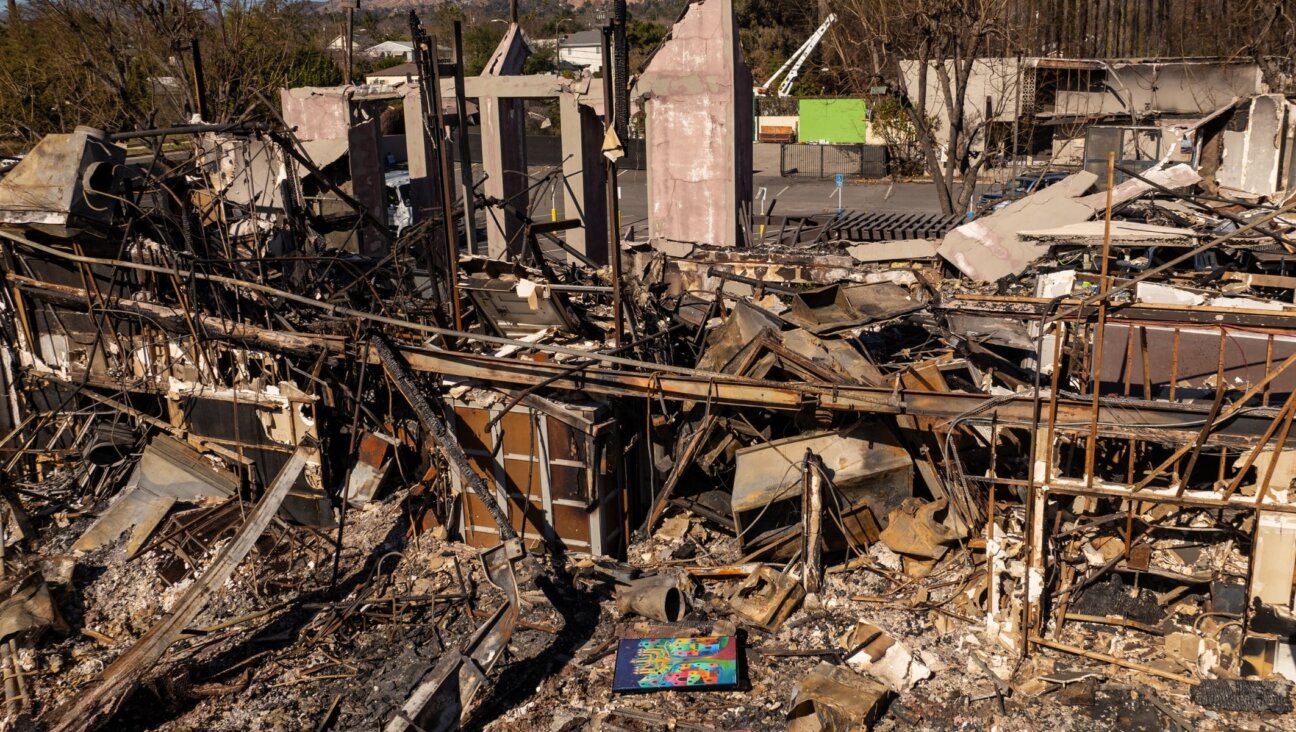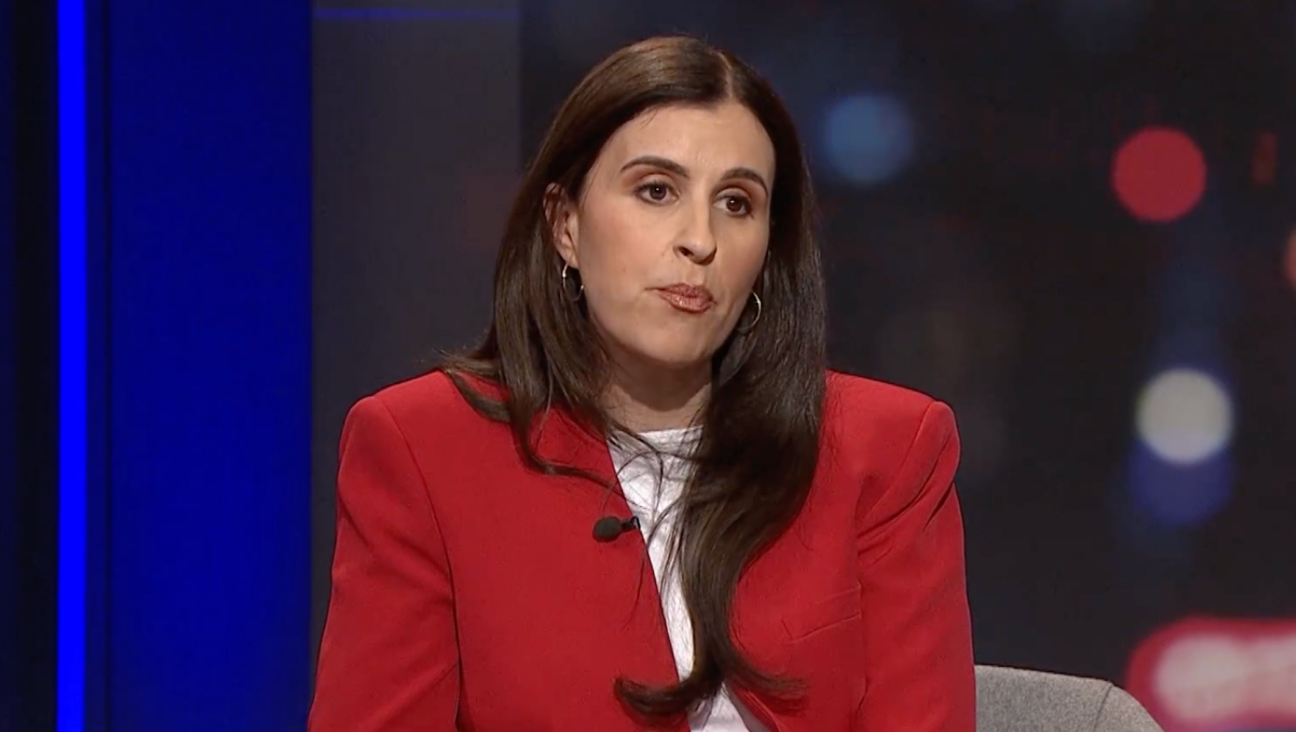Dershowitz Explains Critical Goldstone Remark

Graphic by Angelie Zaslavsky
Alan Dershowitz says it was all a misunderstanding.
The outspoken Harvard Law School professor has told the Forward that he didn’t intend to call the lead author of the controversial Goldstone Report a moser, a Jew who informs on other Jews, in a recent interview on Israel Army Radio.
Indeed, Dershowitz, who graduated from a Jewish elementary school and high school, says that he does not even know the meaning of the word — a term from Jewish religious law that the assassin of Yitzhak Rabin cited to describe why the Israeli leader deserved to die.
Instead, Dershowitz claims that he thought he was telling his interviewer that the South African jurist was “absolutely” a “monster.”
Dershowitz’s harsh criticisms of former South African Supreme Court Justice Richard Goldstone made news in Israel after selections of the interview were aired on the popular morning news program “Ma Boer” (“What’s Burning?”) on January 31. After calling Goldstone “an evil, evil man” and “an absolute traitor” for his role in a United Nations report charging that Israel’s military deliberately targeted civilians, Dershowitz now claims to have stepped back from some of those comments.
“I wrote to the broadcaster, retracting my word ‘traitor,’” Dershowitz told the Forward. “But if you’re asking me deep in my heart and soul do I believe that the word fairly characterizes him, in light of the way he’s used his Jewishness, both as a shield and a sword? You know, if the shoe fits.”
Goldstone declined to comment for this story.
Dershowitz’s comments came in the midst of a new offensive by Israeli politicians against Goldstone and the report issued by the U.N. committee he chaired. Also on January 31, Kadima party leader Tzipi Livni said that the Goldstone Report was “born in sin.” The previous week, Information Minister Yuli Edelstein called the report “antisemitic.”
In the Israeli Army Radio segment “Ma Boer,” host Razi Barkai asked Dershowitz regarding Goldstone, “Do you hint, professor, that he is a moser, someone who betrays his own people?”
“Absolutely,” Dershowitz responded.
The term moser entered the Israeli political discourse in 1995 in the wake of Rabin’s assassination by radical settler supporter Yigal Amir, when Amir cited some rabbis’ designation of Rabin as a moser as part of his justification for carrying out the murder.
“After the assassination, when Amir was interviewed [by] the police and he mentioned the term moser, people tried to find out what it is,” said Michael Karpin, an Israeli journalist and the author of a book on Rabin’s assassination, titled “Murder in the Name of God.” “Nobody used it here before the assassination.”
What they found was a halachic ruling against those who betrayed Jews to non-Jewish authorities. “A moser was an individual who reports another Jew to the secular authorities,” said Yosef Blau, the mashgiach ruchani, or spiritual guidance counselor, at Yeshiva University’s rabbinical seminary. “In the context of much of Jewish history, it meant someone who was basically traitorous, and who was trying to gain favor in the eyes of the rest of the world by turning other Jews in.”
In some cases, Jewish law calls for a moser to be put to death.
“A moser can become a capital crime if he makes a business of it,” said Moshe Tendler, a rosh yeshiva, or dean, at Y.U.’s seminary. “You have a fellow who is basically an animal of prey — he’s preying upon the society for his own benefit. That fellow has to be dispatched with.” Tendler added, “It doesn’t apply in our modern times.” He rejected the notion that the term applied to Goldstone in any case.
For Karpin, the Rabin precedent attaches a level of danger to the designation of Goldstone as a moser. “Somebody [in Israel] or in the States could understand it as if he was ordered, or he got permission to do something against Goldstone,” Karpin said.
But of course, Dershowitz is no rabbi. And that, Blau stressed, makes a difference. Among lay people, he said, the term can carry a colloquial meaning that’s far from a rabbinic decree. “It’s usually said more rhetorically. It depends who would say it,” Blau said. “If Alan Dershowitz would say it, he’s certainly not saying, okay, somebody go out and kill him.” On the other hand, Blau said, “If it came from some right-wing rabbi in Israel, say from the heads of yeshiva Od Yosef Chai” — a radical settler yeshiva in the West Bank — “then it would be taken much more seriously.”
Dershowitz claims that the audio clip is based on a miscommunication. According to Dershowitz, when Barkai asked if he thought Goldstein was a moser, he misheard him: “I thought he said ‘monster.’ And I didn’t say yes, because I wouldn’t ever characterize anybody as a monster.” Dershowitz says that Barkai asked him the question multiple times, and only after Barkai added the explanatory phrase “someone who betrays his own people” did Dershowitz answer in the affirmative.
Dershowitz says that he stands by the claim that Goldstone betrayed his people. But he said, “To this day, I don’t know what moser means.”
“Moser was a term that was certainly used. He must have heard it as a child,” said Blau, who grew up with Dershowitz and attended religious elementary and high schools with him. “I don’t recall it coming up in the schools we went to, but it certainly was out there.”
Later in the Israel Army Radio interview, Dershowitz referred to a section of the weekday Amidah that curses traitors. He said that it referred to Goldstone. “I would say that there’s a prayer for people like him that is said every day: Lamalshinim al tehi tikva [For those who slander there should be no hope],” Dershowitz told the interviewer.
According to the ArtScroll Siddur, the text continues, “…and may all wickedness perish in an instant and may all Your enemies be cut down speedily. May You speedily uproot, smash, cast down and humble the wanton sinners speedily in our days. Blessed art Thou… who breaks enemies and humbles wanton sinners.”
In his interview with the Forward, Dershowitz said that he understood the quote he cited to mean that “people who use their credibility as Jews and their words to destroy the Jewish people shall not have any hope in the world to come. It has nothing to do with here on earth. And since I don’t believe in the world to come, it’s an empty threat.
“I do not want any harm to come to Richard Goldstone,” Dershowitz said. “I want him to be responded to in the marketplace of ideas.”
Contact Josh Nathan-Kaszis at [email protected]
















